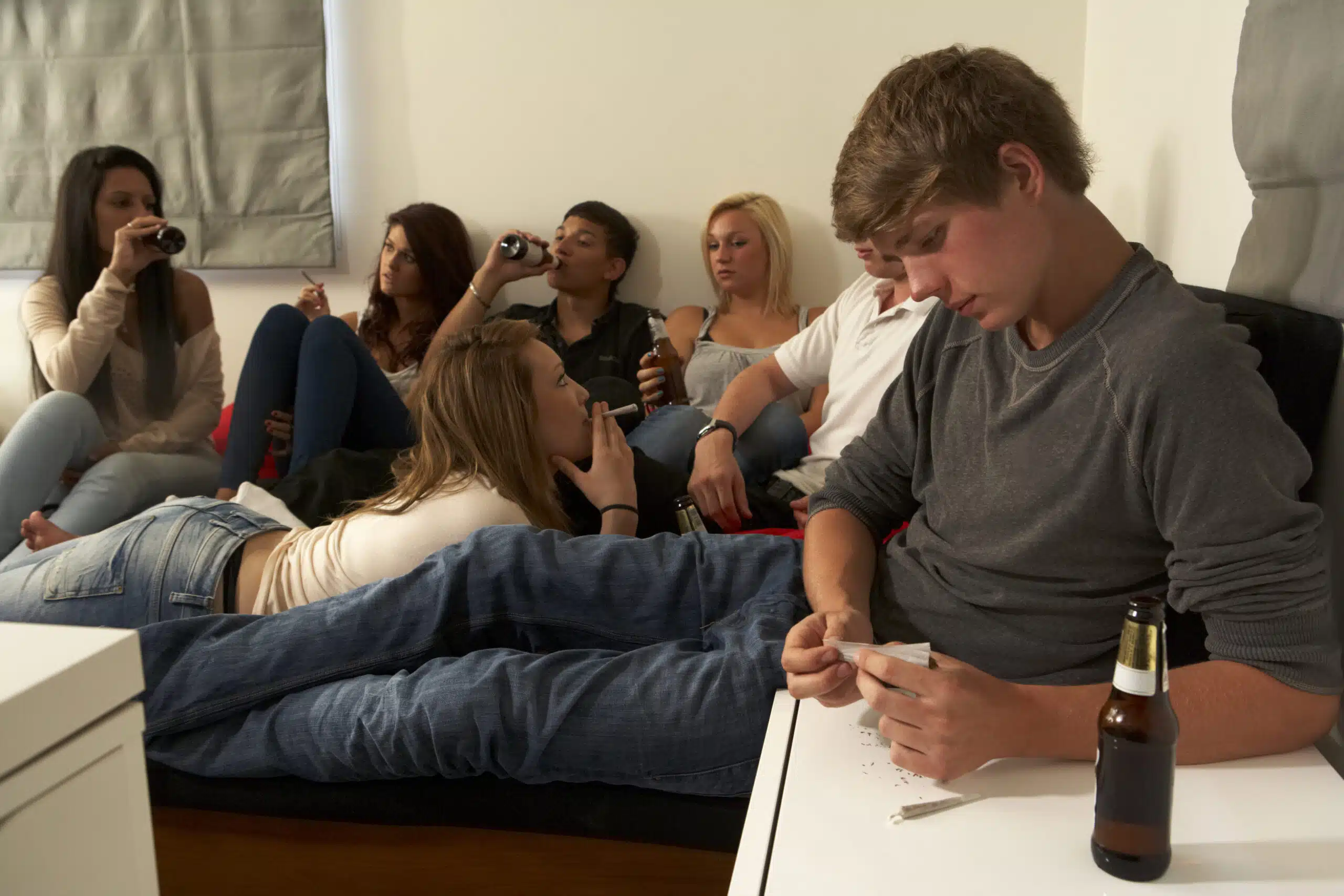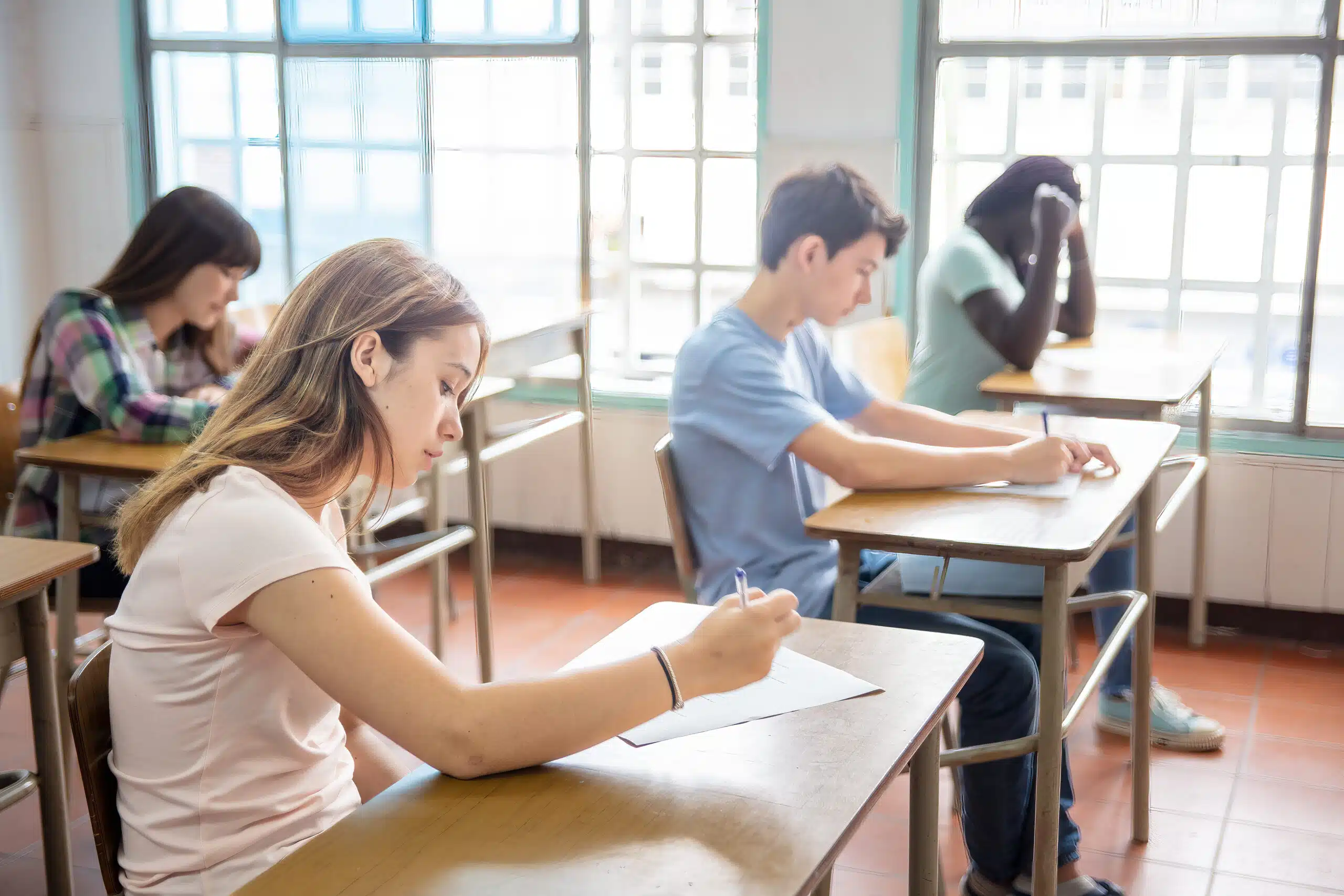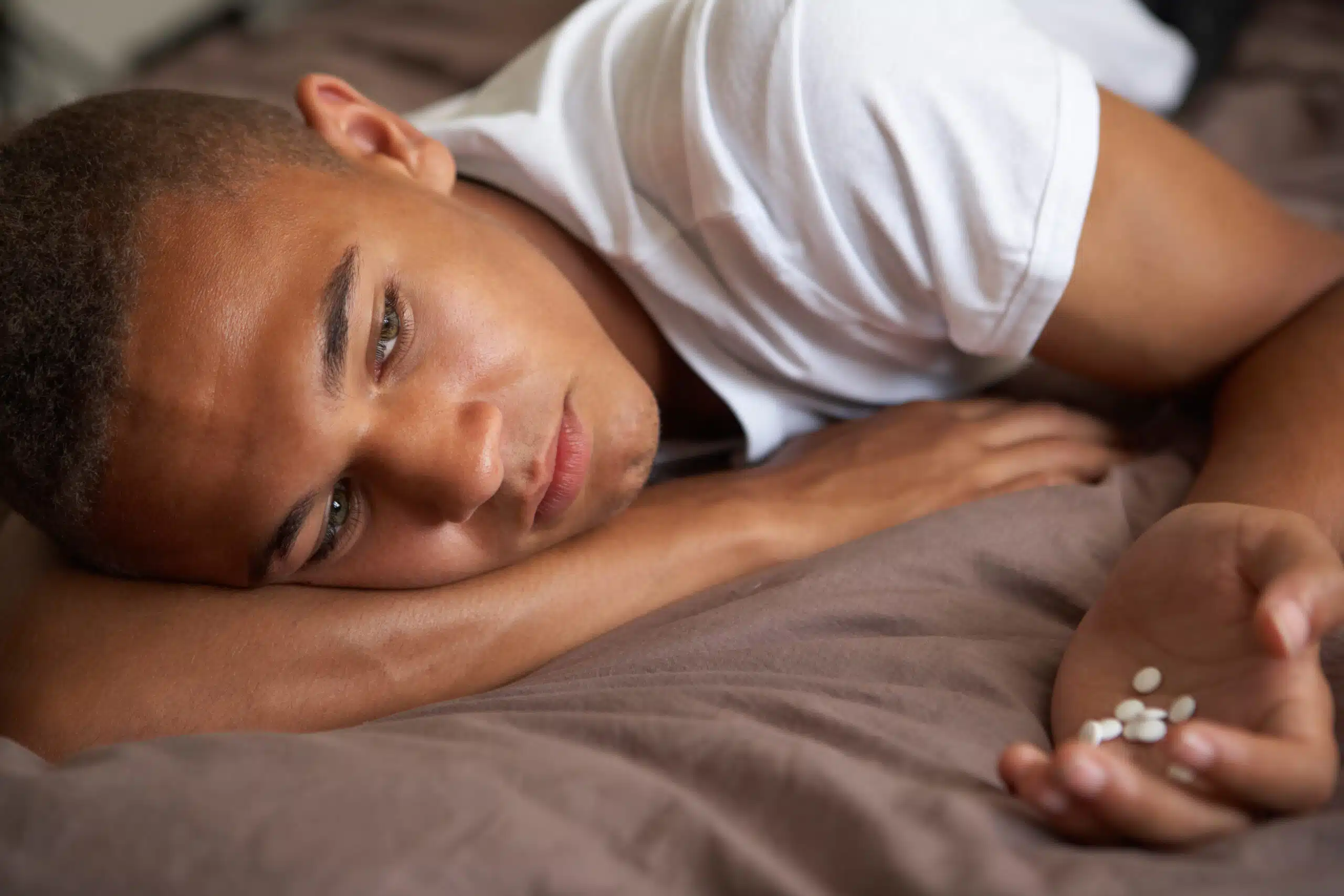
How to Spot A Toxic Relationship with Drugs
For parents concerned about their child’s relationship with drugs, emotions generally run high. How do you know if your teen is using? How do you talk to them about your concerns? Some parents choose to avoid the conversation entirely because they do not know how to cope with what their child may say. Unfortunately, avoiding or denying your teen has a toxic relationship with drugs is a potentially dangerous path. Not only will it likely enable them to continue using, but it will also delay getting them the addiction treatment help they need to overcome an addiction. Many studies show that early intervention and treatment at a teen treatment center like Beachside is vital to achieving lasting sobriety.
Learn more about our teen drug rehab in California or call us now at 888-254-0916.
Is Substance Abuse Common in Teens?
The most commonly abused drugs among youth and teens are marijuana, alcohol, and tobacco. However, other substances, including methamphetamines, ecstasy, and inhalants, are likely to be used by some age groups. In 2017, nearly 2.3 million American youth (between the ages of 12 and 17) began drinking alcohol. Also, in 2017, about 1.2 million youth and teens from the same age group used marijuana for the first time. During the same year, another 604,000 began using tobacco products. Hallucinogenic drug use, prescription opioid abuse, inhalant abuse, and the use of other illicit drugs have also increased over the last decade in our nation’s youth and teens.
Adolescent and teen drug use cause complications and difficulties, which impact the remainder of their lives. Teens who begin using drugs at an early age are more likely to develop a chronic substance use disorder, which extends into adulthood. As a parent, it is essential to know how to spot a toxic relationship with drugs so you can quickly get help for your teen at a teen-focused treatment program like Beachside.
Understanding Teen Behavior
One crucial factor in analyzing teen substance abuse is knowing how to separate “normal” teen behavior from behaviors that may indicate your teen has a substance use disorder. Teen behaviors are often more unpredictable and sometimes more extreme than the behaviors they displayed as a toddler or as middle schoolers. As they grow and develop, teens reach a time in their lives when they want to explore their identity and personality and exercise their voice and opinions.
During this time, teens will often actively push to separate themselves from parents, siblings, and some of their social circles. You may notice they want more privacy and are less inclined to want to be a part of family activities and functions. You may also see their social groups begin to change and evolve along with new and different activities and hobbies. Although parents often find these changes frustrating and even worrisome, they are (for the most part) a healthy part of teen growth and development.
The behaviors of teens with a drug or alcohol use disorder generally look different. Compared to healthy teenage development, teens who may have a substance use disorder are more likely to engage in unusual, highly disruptive, and (sometimes) alarming behaviors. Recent data suggests more than 20% of American high school seniors state they have experimented with or regularly use illicit drugs. The high frequency of teen drug use and abuse underscores the crucial importance of parents knowing and recognizing the symptoms of teen drug substance abuse.
Signs of A Toxic Relationship with Drugs in Teens
There are several indications your teen may be using drugs or alcohol and, as a result, could benefit from addiction treatment at an addiction treatment facility like Beachside in Los Angeles, California. While distinguishing between teen experimentation and a substance use disorder can be difficult, there are certain signs to watch for that may better help parents understand their teen’s behavior.
Changes to Normal Habits
You are likely familiar with your teen’s daily routines and habits. As a result, should your child start making or has made drastic changes to these routine parts of their day, you are likely to take notice. It is important to note that routine changes like these are the most straightforward ones to ignore, as they may seem like isolated events. It is helpful to look for (watch for) changes in your teen, appetite changes, failing grades, changes in their peer groups and social activities, new cravings, and complaints from teachers about changes to their behavior.
Changes in Physical Appearance
Changes in your child’s physical appearance may vary depending on their substance of choice. Consequently, these particular changes may be harder to spot. Watch out for flushed (red) cheeks, bloodshot eyes, runny hose, disheveled appearance, poor hygiene, and nosebleeds. Some drugs may result in unexplained bruises or “track marks” on the arms. If your child wears long sleeves in hot weather, it may also indicate injectable drug use. Other important physical symptoms may include shaking and tremors. Remember that physical changes will usually vary from person to person, so it is important to look for differences specific to your teen.
Secretive Behaviors
Some teens are naturally more reserved or withdrawn than others, so voluntary isolation may be usual for your teen. However, when a child who is usually outgoing or extroverted becomes reserved or abnormally introverted and begins to withdraw more, it may be time to take a closer look at the “why.” Look for behavioral changes like avoiding eye contact, locking doors, going out late at night, and stealing. Other concerns may include skipping extracurricular activities, not showing up for work, or missing class.
Changes At Home
Some changes that may occur within your home may be subtle and difficult to detect. Others should stand out as a clear sign that something is wrong and your teen may need addiction treatment help. Keep a watchful eye out for unusual changes around your home. These include missing prescription medications (or over-the-counter medications), containers or wrappers you do not recognize, or the presence of alcohol and drug paraphernalia (eye drops, smoking devices, syringes, and butane lighters).
Changing or Failing Grades
While academic challenges were previously mentioned in the above paragraphs, it is worth a second mention in their own category. When teens start using drugs (or drinking alcohol), their grades are generally the first thing to suffer. Depending on their previous grades and the severity of substance use, your teen’s grades may rapidly decline or slowly worsen with time. You may also receive calls from their school indicating concerns about your teen’s lack of participation in sports, extracurricular activities, clubs, or social events they were once an active part of.
Getting Addiction Help for Your Teen at Beachside
If your teen is addicted to drugs or alcohol, don’t wait to get help. Many teens with substance use disorders need professional help to quit. Detoxing from some substances, including opioids, benzodiazepines, and alcohol, can be difficult, painful, and sometimes deadly without medical supervision and support. In a medically-assisted detox program in Los Angeles, our experienced and caring team of treatment professionals will work closely with your teen as they start their treatment program.
A crucial element of medically supervised detox is comprehensive medical monitoring. During the early stages of detox, your teen can feel safe knowing someone is available to monitor their medical and emotional health. If appropriate, providers can also administer detox medications to help reduce the intensity and severity of certain withdrawal symptoms. Medically supported detox allows your teen to focus on healing while medical and mental health professionals support them during the early stages of detox and withdrawal.
After completing detox, many of the complex and challenging symptoms of withdrawal resolve. However, detox is not a cure for addiction nor a suitable substitute for comprehensive therapy. Therapy is a vital part of recovery, where your teen will learn more about addiction and how to safely manage the triggering situations and circumstances that led to drug or alcohol use.
Our individualized treatment programs at Beachside are designed to treat your teen’s addiction and any underlying medical or coexisting mental health conditions that may complicate their recovery or lead to future relapse. If your teen has a co-occurring mental health condition such as anxiety or attention-deficit hyperactivity disorder, it is crucial to treat both their mental health and addiction simultaneously. Studies show that chronic substance abuse can lead to new or worsening mental health symptoms and vice versa. It is challenging to recover from substance abuse and maintain sobriety when mental health symptoms are unaddressed.
Treatment programs for addiction can occur in a variety of settings. If your teen’s relationship with drugs or alcohol is such that detox is necessary before therapy can begin, a residential treatment program offered at Beachside is likely the safest choice. Our highly trained team of teen-focused medical providers, nutritionists, therapeutic providers, and other care staff work with you and your teen to help them learn safer and more effective ways to manage the symptoms of their addiction. During individual and group therapy sessions, they will learn how to manage triggers or other day-to-day situations which lead them to reach for alcohol or drugs as a method of coping.
We understand that sending your child to a drug addiction treatment program is a complex and challenging decision for a parent to make. If your child has a toxic relationship with drugs, seeking help to overcome addiction and achieve lasting sobriety is vital to helping them take steps towards a substance-free, healthy, and productive future. Unfortunately, teens who do not get treatment to heal from addiction often continue to fight their disease and struggle with relapse well into adulthood. If you believe your teen has an addiction to drugs or alcohol, don’t wait to seek addiction help. Contact us at Beachside to learn more about our teen-focused treatment programs today.



